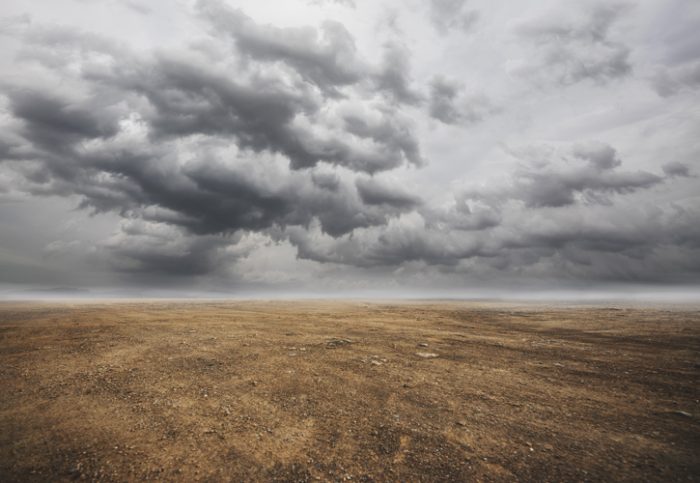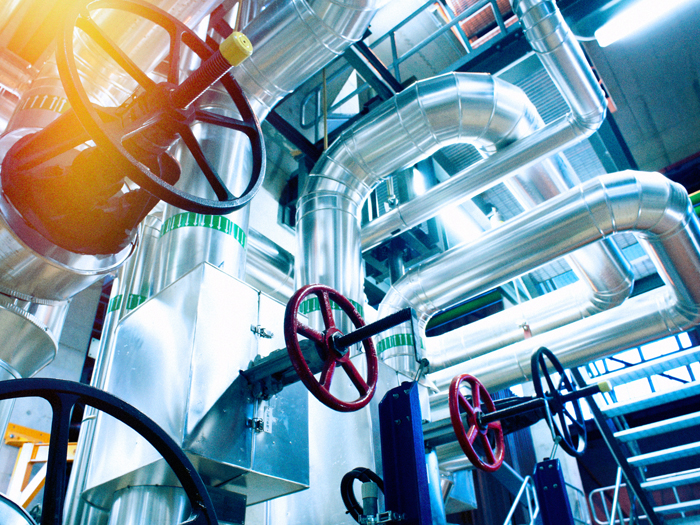Climate Change, Food Shortage and the Risk of Irreversible Loss of Tillable Soil

It looks like a scene out of Cormac McCarthy’s “The Road”: The land is dry and gray; the soil crumbles to dust at the touch of your fingertips; there are no trees, no crops, no flowers–only the vastness of the desert.
If you prefer a more cinematic version, put on the 2015 film “Mad Max: Fury Road.” There, the dried Earth is brown not gray, but it’s just as lifeless. And you get to watch people driven to violence over mere drops of water.
Whichever image you prefer, scientists agree that’s where the planet is heading as a new United Nations report warns that climate change could have dire effects on the global food and water supply, according to the New York Times.
The Report at a Glance
- A major finding in the report is that the world is quickly turning to desert. Soil is being lost between 10 to 100 times faster than it is being formed and a half-billion people currently live on land that is turning to desert.
- Draining peatlands, a form of wetland, for palm oil plantations releases carbon dioxide into the air. Given that peatlands currently store between 530 and 694 billion tons of CO2, that could lead to an incredible amount of greenhouse gas entering the atmosphere.
- Prolonged droughts and drying lands already are causing people to migrate in search of food and water. Dry periods in El Salvador, Guatemala and Honduras caused the number of immigrants showing up at the U.S. border to increase fivefold between 2010 and 2015.
- The global demand for meat is also warming the Earth. Since 1961, methane emissions from cows, sheep, goats, and buffalo have significantly increased.
- The amount of forested land that is cleared each year for cattle use and other purposes releases the emissions equivalent of driving 600 million cars.
Some Specifics
The report was written by the Intergovernmental Panel on Climate Change, an international group of scientists convened by the U.N. that helps governments understand the effects of climate change so that they can make effective policy decisions.
The good news is that they believe people can still take action to prevent the worst of these shortages from happening.
They emphasized that making the food system more efficient by introducing better soil management practices, increasing crop diversification and placing fewer restrictions on trade are actions that can be taken immediately to help preserve the soil.
Reducing the amount of food waste produced each year is another way to keep shortages at bay. Currently, one-quarter of all food worldwide is wasted.
The biggest key to maintaining the food supply, however, is keeping the Earth from warming two degrees.
“Above 2 degrees of global warming there could be an increase of 100 million or more of the population at risk of hunger,” Edouard Davin, one of the report’s authors and a researcher at ETH Zurich, told the New York Times. “We need to act quickly.”
While scientists are optimistic that we can still prevent the worst of climate change’s effects, many countries are already feeling the impact of global climate change at the Earth’s current level of warming.
For example, water shortages are already affecting India and South Africa. In India, the city of Chennai has nearly run dry after two years of scanty rains, according to the Washington Post.
The shortage has caused the nearly 9 million residents of the city to spend hours each day searching for water supplies and violence has broken out over water disputes. Other Indian cities, including Bangalore, Hyderabad and Delhi are expected to face similar scarcity.
South Africa is also experiencing an extreme water shortage. In January of 2018, the city of Cape Town announced that it was three months away from running out of water.
So far, City Lab reports that the city was able to make it to June 2018, when they had average rainfall for the first time in years, without turning off the taps, but the situation is still tenuous.
Economic inequality has caused disparities in who has access to water. For many poor citizens of Cape Town, any day could be the day when they run out.
While these issues may seem far away, the U.S. is on track for a record-hot summer and farmers, who’s planting season was delayed due to floods and snowstorms, are concerned about crop and livestock losses due to drought.
“You’re sort of reaching a breaking point with land itself and its ability to grow food and sustain us,” said Aditi Sen, a senior policy adviser on climate change at Oxfam America, told the New York Times.
And that breaking point could turn the worlds of “The Road” and “Mad Max: Fury Road” from fantasy into our own backyards.
Recommended Reading
Risk & Insurance® has covered the effects climate change could have on the food supply before. From chocolates to avocados, here are the foods that we could lose as the Earth’s seasons become more severe.
Climate change doesn’t just put our food and water supply at risk. Increases in natural catastrophes, business interruption costs and occupational hazards are all occurring due to global climate change. The current cost of global climate change is estimated to be $650 billion and that number is only growing. &









